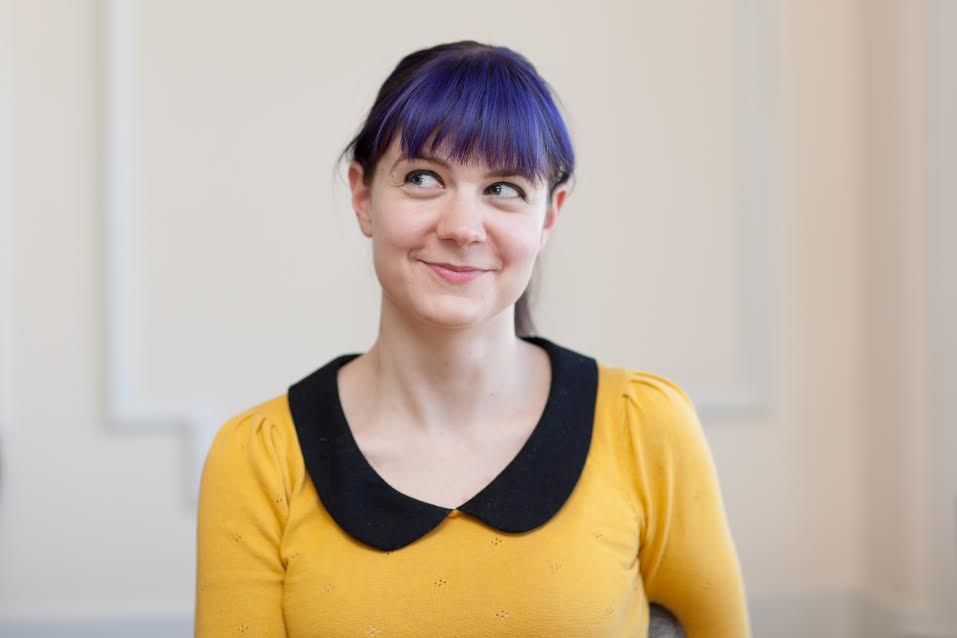Transforming the Future of NASA with CodeConf’s Ariel Waldman
CodeConf 2015 will take place in Nashville on June 25 and 26. Ariel Waldman is one of many incredible speakers that will take the stage at the Bell Tower to…
CodeConf 2015 will take place in Nashville on June 25 and 26. Ariel Waldman is one of many incredible speakers that will take the stage at the Bell Tower to share her expertise. We asked her some questions about her experiences at NASA, her vision for the future, and more. Check out her answers below!

Q: Why is collaboration important to you, and how do you think it can further scientific exploration and discovery?
A: To me, multidisciplinary collaboration is at the heart of furthering scientific exploration and discovery. In my work, I especially focus on unusual collaborations between people from different backgrounds. By having a fresh set of eyes from those who solve problems across a wide range of industries, new concepts emerge and go on to influence scientific processes, communication and discoveries in unexpected ways. Science doesn’t require serendipity, but I’d argue it’s significantly disadvantaged without it.
Q: You spoke at the very first CodeConf in 2011, and we’re excited to have you back since you’ve been doing so much exciting stuff in the meantime. What was your experience of CodeConf 2011, and what are you looking forward to seeing at CodeConf 2015?
A: CodeConf was fantastic. The community was so excited to have a wide range of topics at a “code” conference and I think it really helped open everyone up to new opportunities and aspirations. I think what made CodeConf 2011, and what will make CodeConf 2015, so special was the unexpected connections people end up drawing and a broadening of how big the universe to play in is.
Q: GitHub had the pleasure of hosting Science Hack Day in 2014, and we’ll do so again this year. What is the purpose of Science Hack Day, and what were some of the most exciting projects to come out of that event?
A: The mission of Science Hack Day is to get excited and make things with science! Science Hack Day is a 2-day-all-night event where anyone excited about making weird, silly or serious things with science comes together in the same physical space to see what they can prototype within 24 consecutive hours. Designers, developers, scientists and anyone who is excited about making things with science are welcome to attend – no experience in science or hacking is necessary, just an insatiable curiosity.
One of the projects I loved that came out of the Science Hack Day SF at GitHub last year was an interactive planetarium where you could explore the distance between stars, planets and constellations using your hands via a Kinect. I loved the idea of making a planetarium more physical. Because the code was made open source on GitHub, the project was then hacked on further and installed as a temporary exhibit at the American Museum of Natural History in NYC, where school kids, families and even an astronaut got to try it out!
Q: Tell us about NASA Innovative Advanced Concepts (NIAC). How can we participate in and contribute to the vision of this project?
A: NASA Innovative Advanced Concepts (NIAC) is arguably the coolest program at NASA – they fund and nurture all the radical, sci-fi-esque ideas that could one day transform future space missions. Submarines on Titan, human hibernation to Mars, comet hitchhiking space probes, you name it. Some utilize computer science and computer vision techniques – one project analyzes light versus dark areas on the Moon so that a lunar rover could navigate staying in continuous sunlight, thus able to be more efficient by having continuous solar power. The cool thing about NIAC is that they accept proposals from anyone every year around October, so if you have a credible idea you’d like to do further research and prototyping on that could transform a future space mission, you can apply!
Follow Ariel on Twitter for more updates on all of her projects, and grab your CodeConf ticket now! We can’t wait to see you in Nashville next month.
Tags:
Written by
Related posts

GitHub availability report: January 2026
In January, we experienced two incidents that resulted in degraded performance across GitHub services.

Pick your agent: Use Claude and Codex on Agent HQ
Claude by Anthropic and OpenAI Codex are now available in public preview on GitHub and VS Code with a Copilot Pro+ or Copilot Enterprise subscription. Here’s what you need to know and how to get started today.

What the fastest-growing tools reveal about how software is being built
What languages are growing fastest, and why? What about the projects that people are interested in the most? Where are new developers cutting their teeth? Let’s take a look at Octoverse data to find out.